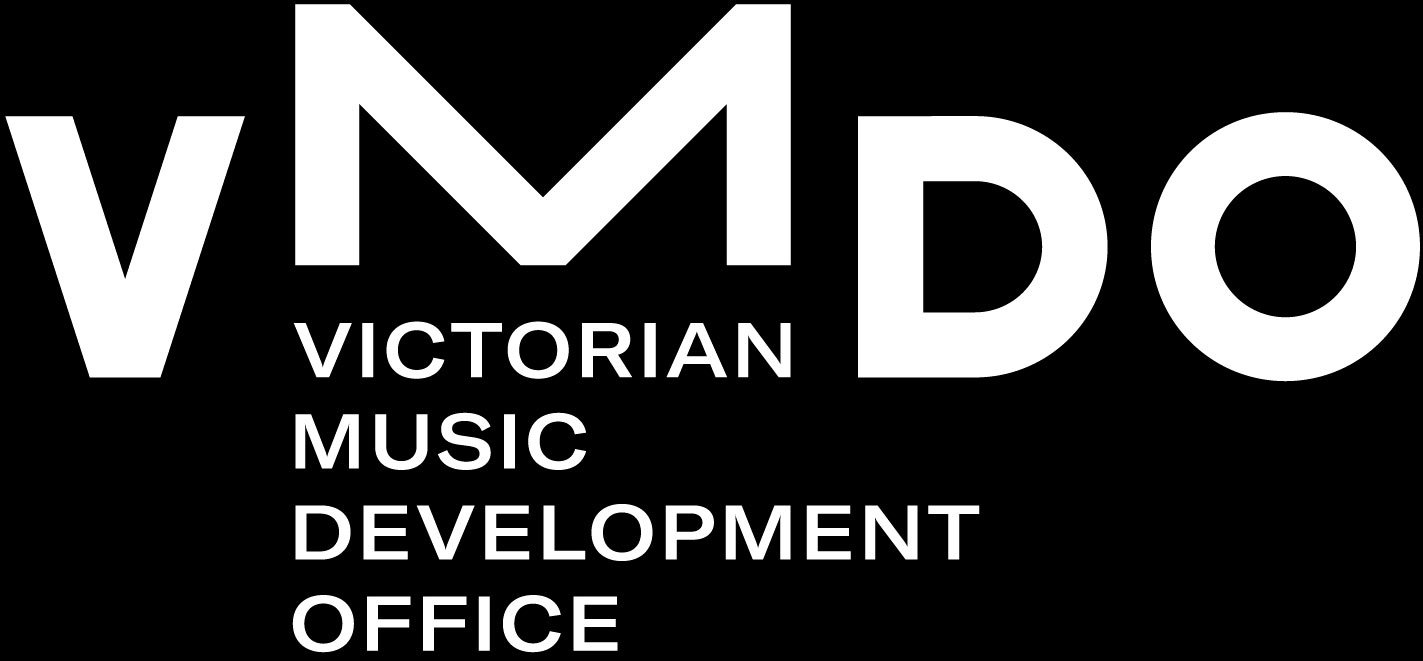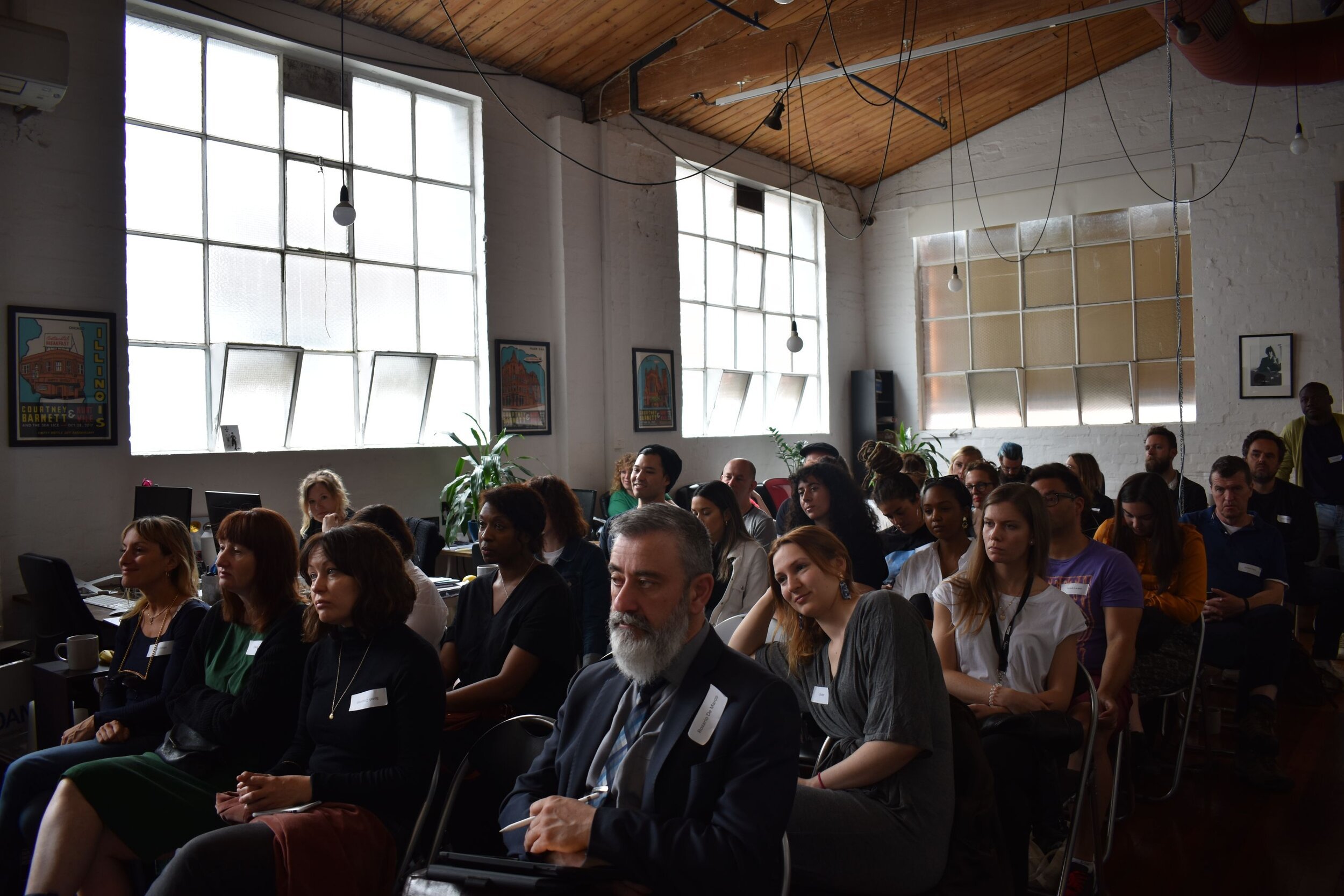VMDO - Networking Breakfast #11 Recap
L-R: Katie Rynne (Village Sounds), Matt Walters (Parlour) and Mike Ross (Live Nation)
Published 12 December, 2019
Date: Tuesday 10 December, 2019
Location: White Sky Hub, Collingwood
Speakers: Katie Rynne (Village Sounds), Matt Walters (Parlour) and Mike Ross (Live Nation)
Moderator: Bonnie Dalton (VMDO)
VMDO’s last Networking Breakfast for the year was centred around a panel of live touring experts discussing how artists and their teams can create new opportunities and maximise income and growth potential. Speakers included Katie Rynne (Village Sounds), Mike Ross (Live Nation) and Matt Walters (Parlour).
Key discussion points:
1. Introductions
2. Touring Business Models
3. Live Strategy
4. Support Slots
5. Knowing Your Market
1. Introductions
Having worked for Select Music (The Preatures, Japanese Wallpaper, Ziggy Alberts) for 8 years, Katie Rynne and has extensive experience both domestically and internationally, and has recently transitioned into a new role at Village Sounds, representing artists such as DMA’s, Courtney Barnett and Vance Joy.
With over 6 years in the industry, Mike Ross is an experienced promoter for Live Nation. Having run his own business previously, he has valuable touring knowledge specifically to aid emerging artists with their touring schedules.
Founder/CEO of Parlour, Matt Walters created the global technology platform which empowers artists to tour to new places and build deeper connections with their fans. Matt utilises data that artists can gather from platforms such as Facebook, Spotify, etc. to figure out where an artist can tour and where their fans exist.
2. Touring Business Models
Katie, Mike and Matt discussed the logistics of working with people when booking an artist’s tour. Katie identified that Australia is the only market where agents don’t always sell shows to promoters, and that majority of the time the tour advancing (planning of flights, accommodation backline organisation etc) and marketing is arranged by the artists management. She also provided insight that her approach as an agent is to always aim to sell out every single show on pre-sales to build moment for the tour.
Mike stated that Live Nation will team artists up with a variety of specialised resources such as a marketing manager to ensure that you’re reaching maximum audiences, alongside a production manager to guarantee that your logistics and backline are organised professionally. It is expected that there will be a fee or cost attached when working with a promoter, however an artist must weigh up the time, effort and experience to organise these components against the cost.
Parlour works best when the booking team and artist management are all working together. Costs constantly change, as it depends on how the artist is structured and whether they have a small or large team behind them.
3. Live Strategy
Katie shared that within Australia, there are very limited venue options and that gut and knowledge from prior tours have an impact when booking an artist’s tour. Important factors to refer to when booking a tour are the knowledge of venues, sales based on population and the reputation/popularity of the venue within the community. It is always important to collect data from every show to provide the artist with a database for future shows and to rely on artist management for streaming information. Getting high rotation on radio play provides a platform for the song, however it does not mean that your song will connect, as many music fans may not know who actually sings it.
In Mike’s experience, gut still does play a big part of booking, however it is hard to ignore the data. Radio play and streaming do factor into coverage and awareness of an artist, however, if it is not playing on radio it doesn’t mean that it won’t succeed. Live Nation can afford to take a loss on a couple of tours if they believe in an artist and want to take a chance on them. Sometimes it is important to do tours to get streaming numbers up and provide coverage for the artist in new areas, with the aim to create a new fan base.
Parlour helps find that super fan, who takes the time to get to know the artist and wants to support them further by hosting a show. There isn’t always a lot of clarity around data, and sometimes statistics can be incorrect, and an artist takes off where it wasn’t anticipated. It can be a gamble.
4. Support Slots
Katie shared that pitching for support slots is about positioning and presenting to the right people at the right time with a resume of previous festivals and shows. An artist displaying high streaming numbers and festival slots may have a higher chance at being selected. It can be a gamer changer depending on the act. It is also still okay for emerging artists to feel like they can still be wobbly live. Audiences just want to go out and have fun, and they aren’t fully aware about technical things. Part of an agent’s job for an act that is blowing up is to prepare them with the right venues and build them up, and not so much the expectation to perform big venues. The process is preparing them for bigger venues and prominent festival slots in the future.
Mike provided the insight that the final call on support slots are up to the headliner. Often its artists that have a fairly well-established fan base already. Sometimes headliners just want their friends to support. It varies based on each show. With emerging artists, there is a difference between being not ready and a bit wobbly. It’s expected that a young act will be nervous.
Parlour books production if the band wants it. Generally, bands will strip the show down, and after a show they will mingle and build their audience by displaying that they are just people.
5. Knowing Your Market
Australia, New Zealand and Asia are very different markets. Katie shared that this is when the focus is on statistics and radio play. The New Zealand radio scene is different from Australia’s as they don’t have a triple j equivalent. Asia has different requirements, currently it is a completely separate tour for artists. The first thing that promoters ask are what are your streaming statistics.
Mike shared that New Zealand was seen for a while as a black box. The divide is lessoning now, but you do have to take a different approach. They don’t have a Triple J. And in Asia – Japan for example don’t even look at Spotify, they still look at physical sales. Asian countries all have their own national artists, and it can be difficult to know what will work and what won’t. They send really conservative offers - 100 cap rooms, and only metro areas. However, touring in Asia is great for the artist to go and build a fan base even if the money isn’t great.
Matt informed us that Parlour hasn’t built the languages within their technology to cater for Asia just yet. Parlour has one ticket price and one minimum capacity. It interesting that fans don’t really care about the market, they just love the artist and want to fully support them.
Written by: Mahala Bond
Interested in attending our next Networking Breakfast? Find out more here.








